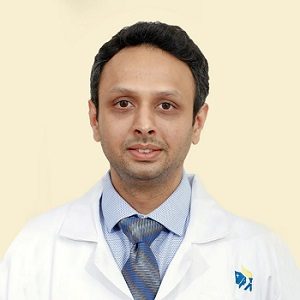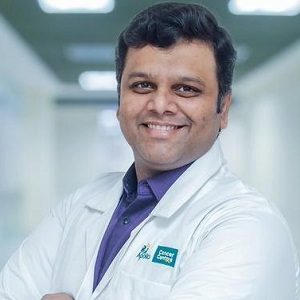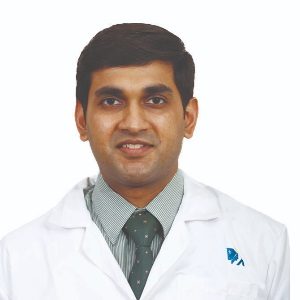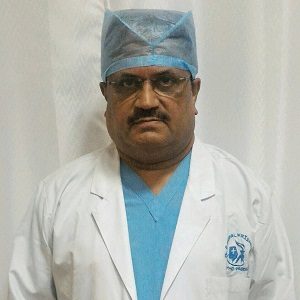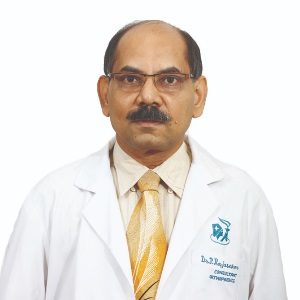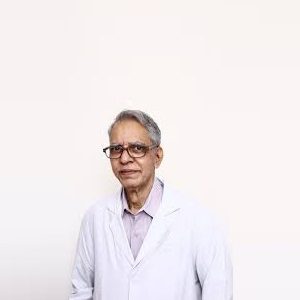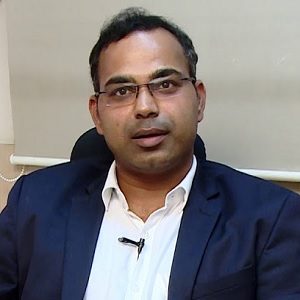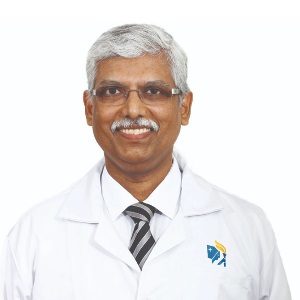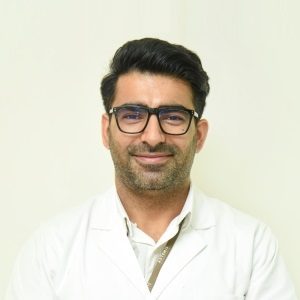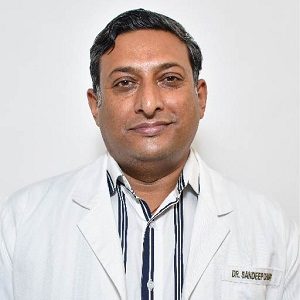Best Doctors in India for Avascular Necrosis Treatment
- Orthopedic Surgeon, Chennai, India
- Over 12 years’ experience
Profile Highlights:
- Dr. Kunal Patel consults on Orthopedics related problems at the Apollo hospitals of Chennai.
- He was part of the team which set Limca’s World record of Highest Joint Replacement Surgeries in March 2015.
- Dr. Kunal Patel is well-trained in Asia’s first and only Brainlab Arthroplasty Computer Navigation Orthopedic suite and has completed several fellowships related to his field.
- Orthopedic Surgeon and Spine Surgeon, Chennai, India
- Over 12 years’ experience
Profile Highlights:
- Dr. Madhu Kiran Yarlagadda is an orthopedics – consultant specializing in Joint and spine surgery and works at the Apollo hospitals of Chennai.
- Dr. Madhu Kiran Yarlagadda’s team carried out Robotic Spine Surgery for the first time in South-East Asia and performed Endoscopic Transforaminal Spine Surgery in Chennai.
- He treats spine diseases and has the facilities and expertise to perform robotic spine surgery. Along with that, he treats patients with joint and other orthopedic issues.
- Orthopedic Surgeon, Chennai, India
- Over 16 years’ experience
Profile Highlights:
- Dr. Arun Kannan is a well-known joint replacement surgeon at the Apollo Hospitals, Chennai.
- In his 16 years of experience doing joint surgeries and treating orthopedic issues, Dr. Arun Kannan has worked in the US as well as India and has gained enough trust and recognition from his patients.
- He has been excellent in his academics as well as practice because of which he received prizes and appreciation in both.
- Orthopedic Surgeon, Chennai, India
- Over 40 years’ experience
Profile Highlights:
- An Orthopedic doctor by profile, Dr. Gopala Krishnan has around 40 years of experience in his field.
- After his initial studies in medicine in Chennai, Dr. Gopala Krishnan moved to the US to pursue M.Ch in Orthopedics in 1984.
- His experience and dedication have helped him gain recognition in the field and build trust among patients.
- Orthopedic Surgeon, Chennai, India
- Over 24 years’ experience
Profile Highlights:
- Dr. Rajasekar P is an experienced orthopedist with 24+ years of experience.
- He treats and consults patients with problems with Joints, fractures, osteoporosis, Spine injuries, etc.
- He is an MBBS and DNB qualified doctor and practices at Apollo hospitals of Chennai.
- Orthopedic Surgeon, Chennai, India
- Over 50 years’ experience
Profile Highlights:
- Dr. Uma Chandran S specializes in orthopedics and is a veteran surgeon at Apollo Hospitals of Chennai.
- He has spent more than 50 years in the field of orthopedics and is believed to be one of the best orthopedists in Chennai.
- He is also known for his expertise in bone replacement surgery, spine movement, fracture treatment, etc.
- Spine Surgeon and Orthopaedic Surgeon, Chennai, India
- Over 18 years’ experience
Profile Highlights:
- Dr. Muralidharan Venkatesan is a consultant in spine surgery from Chennai.
- He provides comprehensive cervical (neck), thoracic (upper back), and lumbosacral (lower back) conditions treatment.
- Dr. Venkatesan pursued MBBS, MRCS, and a fellowship FRCS and shifted his specialization to spinal surgery.
- Dr. Venkatesan has his papers published in several journals.
- Orthopedic Surgeon and Spine Surgeon, Chennai, India
- Over 23 years’ experience
Profile Highlights:
- Dr. Ravi Venkatesan is a spine surgery specialist from Chennai, Tamil Nadu.
- His experience in spine surgery, orthopedics, and spine deformity surgery date back nearly 23 years.
- Dr. Venkatesan has performed several surgeries and has been an active member of various orthopedics groups.
- Many organizations have recognized his service and have awarded him for his dedication.
- Orthopedic Surgeon, Gurugram, India
- Over 10 years’ experience
Profile Highlights:
- Irfan Banday is a brilliant young orthopedic surgeon with over 10 years of experience handling trauma surgeries and ortho problems.
- Irfan received Fellowship in Knee Arthroscopy and Arthroplasty and Shoulder and Upper Limb Arthroscopy, Arthroplasty & Reconstructive Surgery.
- He manages simple & complex fractures, Reconstructive Surgeries of the Knee, Shoulder, Upper limb, and complex tendon transfers.
- Orthopedic Surgeon, Gurugram, India
- Over 18 years’ experience
Profile Highlights:
- Sandeep Chauhan is one of the best orthopedic surgeons and an expert in managing complex fractures, even in children, soft tissue injuries, septic arthritis, and osteomyelitis.
- He performs fracture reconstructions; and arthroplasty procedures like surface replacements, cemented and un-cemented THR, Total Knee Replacement, musculoskeletal infections, UKA knee, hip, shoulder, & elbow replacements.
Best Hospitals in India for Avascular Necrosis Treatment
AVASCULAR NECROSIS
Avascular Necrosis is the death of bone tissue which is caused by a loss of blood supply. Also termed osteonecrosis, it causes tiny breaks in the bone and eventually leads to the bone collapsing.
Blood flow to a section of a bone can be interrupted by a broken bone or dislocated joint. This condition is also associated with long-term use of high-dose steroid medications as well as excessive intake of alcohol.
Anyone can be affected by avascular necrosis, though the condition is more common among people between the ages of 30 and 50.
Symptoms
In the early stages of avascular necrosis, most people generally show no symptoms. However, as the condition gets worse, your affected joint is likely going to hurt when weight is put on it. Eventually, you might start experiencing the pain even while lying down.
Pain may be mild or severe and generally, it develops gradually. Pain which is associated with avascular necrosis of the hip can occur on the groin, thigh, or buttock. Other than the hip, the shoulder, knee, hand, and foot may also be affected.
Sometimes, people may also develop avascular necrosis on both sides, i.e. bilaterally.
If you think you have a dislocated joint or a broken bone, or if you experience persistent pain in any joint, it is important to seek immediate medical treatment.
Causes & risk factors
Certain factors that can lead to avascular necrosis or make it more likely include the following:
- Alcohol- If you take several drinks in a day, it can cause fat deposits to form in your blood. This can lower the blood supply to your bones.
- Medical treatments- Radiation therapy for cancer can weaken your bones. Other conditions linked to avascular necrosis include organ transplants, such as kidney transplants.
- Bisphosphonates- These medications which can help you boost bone density might also sometimes cause osteonecrosis of the jaw. This is more likely if you are taking them for multiple myeloma or metastatic breast cancer.
- Trauma- If you break or dislocate a hip, it might also cause damage to nearby blood vessels and cut off the blood supply to your bones. Avascular necrosis is known to affect 20% or more of people who dislocate a hip.
- Inflammation, blood clots, and damage to your arteries- All of these can block the blood flow to your bones.
- Steroid drugs- Long-term use of these inflammation-fighting drugs, either by mouth or in a vein, can lead to 35% of all cases of nontraumatic avascular necrosis. Doctors are unsure why, but the longtime use of certain medications can lead to avascular necrosis. It could be that the medications raise the fat levels in the blood, which lowers the blood flow.
Other conditions which are associated with nontraumatic avascular necrosis include:
- Decompression sickness, which causes gas bubbles in your blood
- Diabetes
- HIV
- Pancreatitis, inflammation of the pancreas
- Autoimmune diseases such as lupus
- Gaucher disease, in which a fatty substance collects in the organs
- Sickle cell disease
Diagnosis
During a physical exam, a doctor is likely going to press around your joints, and check for tenderness. Your doctor might also need to move the joints through different positions, to see, if your range of motion has been reduced.
Your doctor can also recommend certain imaging tests, to help pinpoint the source of pain.
Some of the options include:
X-rays
MRI and CT scan
Bone Scan
Treatment
Treatment for avascular necrosis aims to improve the joint, stop the bone damage, and ease any pain. The best treatment is going to depend on a number of factors, such as your age, the stage of the disease, the cause, as well as the location and amount of bone damage.
If you catch the ailment early, doctors generally recommend medications to relieve pain. Medications can include blood thinners, cholesterol drugs, etc.
If your avascular necrosis is fairly advanced, your doctor is likely going to recommend any of the following:
Core decompression

Bone transplant (graft)
Bone reshaping (osteotomy)
Joint replacement
Electrical stimulation
Prevention
To prevent avascular necrosis, you can take the following steps:
Cut back on alcohol- Heavy drinking is a leading risk factor for avascular necrosis.
Use steroids carefully- Taking steroids over and over again can worsen bone damage.
Keep your cholesterol in check- Small bits of fat are the most common thing that is known to block the blood supply to your bones.
Don’t smoke- Smoking boosts your risk of avascular necrosis.

